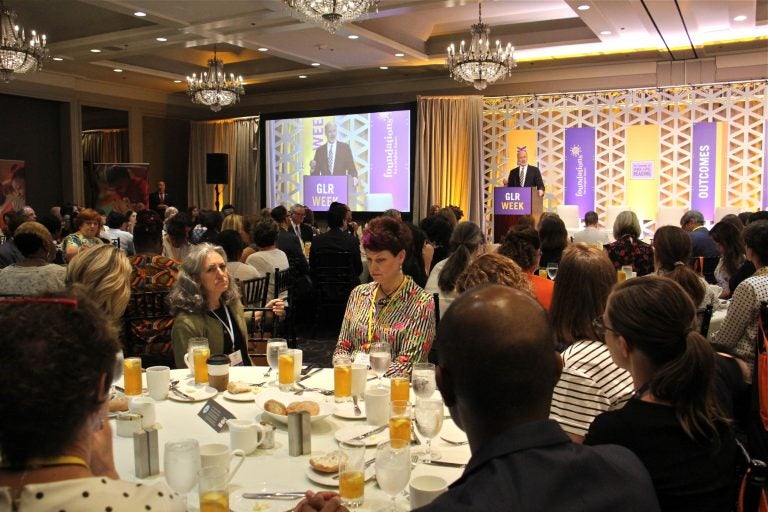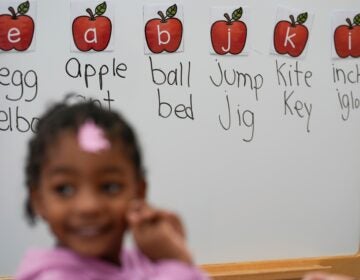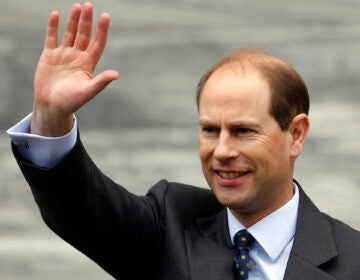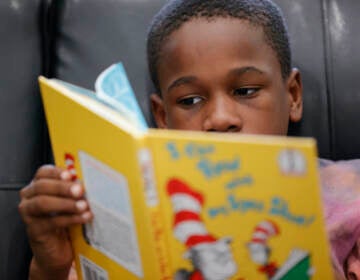Philly flaunts early literacy approach for national audience
At a national conference, city officials attempted to sell Philadelphia as a being on the vanguard of early childhood education and, in particular, early literacy. So, is it?

Gov. Tom Wolf speaks at Grade Level Reading Week in Philadelphia. The group is focused on grade level reading by third grade, an important predictor of success in school. (Emma Lee/WHYY)
Amid the clinking of iced tea glasses and salad forks, Philadelphia officials welcomed a group of more than 700 teachers, experts, bureaucrats, and foundation executives to the Logan Hotel in Center City Tuesday for a conference called GLR week.
Their goal: to sell Philadelphia as a city on the vanguard of early childhood education and, in particular, early literacy.
“We hope you’re inspired by today’s presentations and that you want to support Read by 4th here or to replicate it elsewhere,” said Janet Haas, board chair of the William Penn Foundation, at the kickoff event.
GLR stands for “Grade-Level Reading” and this annual conference of education bigwigs is run by the Campaign for Grade-Level Reading, a coalition dedicated to boosting the number of low-income children reading proficiently by the end of third grade.
The campaign has major backing.
Its “investors” include names like Ford, Kellogg, Buffett, Zuckerberg, and Bezos. That means GLR’s guest list features people with direct lines to some of the nation’s largest checkbooks. With the conference in Philly this year, local leaders have a chance to show off Philly’s approach and perhaps attract more dollars to their early literacy push.
That push includes Read by 4th, a sprawling campaign made up of over 100 local nonprofits and government agencies, managed by the Free Library of Philadelphia, dedicated to early learning. The campaign has given away tens of thousands of books, trained “reading captains” in communities across the city, and tried to integrate more focused reading instruction into summer and after-school programs.
“You’ll hear about how we’re using Read by 4th, our reading captains, how home visiting programs are working together in new ways and we’re bringing literacy to life in laundromats, grocery stores, barbershops, homeless shelters, and other places in our community,” Mayor Jim Kenney told the GLR crowd on Thursday.
Philly has also bet big on early childhood education, with Kenney signing into law a sweetened beverage tax to create 5,500 free, pre-K seats. The School District of Philadelphia, meanwhile, redesigned scores of elementary school classrooms to better facilitate reading instruction.
Is the plan working?
Yes, say local leaders, who point to an uptick in reading scores on state tests. In 2017, the portion of public school third-graders who scored proficient or better on the PSSA exam increased five percentage points — from 30 percent to 35 percent — and fourth-grade scores made a similar leap. When mixing in charter and Catholic school students, about 42 percent of Philly third-graders read on grade level, according to the Read by 4th campaign.
Time will tell if the city can sustain that trajectory, and there is some data to suggest it may be fleeting. Recent results from a national reading test known as NAEP showed Philadelphia fourth-graders performing worse than in years past.
Disclosure: The William Penn Foundation supports WHYY.
WHYY is your source for fact-based, in-depth journalism and information. As a nonprofit organization, we rely on financial support from readers like you. Please give today.





